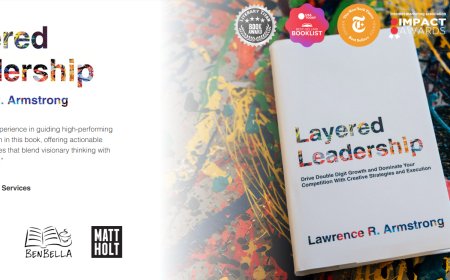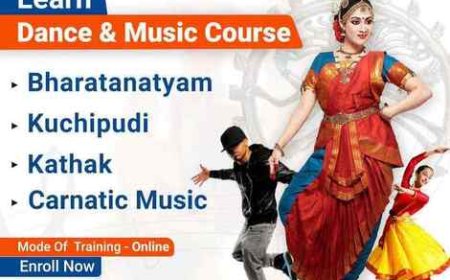The Role of Vocabulary in Achieving a High IELTS Score
The Role of Vocabulary in Achieving a High IELTS Score is crucial—boost your band with effective word choice and usage.

Introduction
If youre aiming for a high score on the IELTS exam, youve probably been told that vocabulary is keyand it truly is. A rich and flexible vocabulary isnt just about knowing big words; its about using the right words in the right context. Whether it's the Speaking, Writing, Reading, or Listening section, your word choices play a major role in how you are evaluated. In fact, vocabulary contributes directly to your score in both Speaking and Writing modules. In this guide, well explore why vocabulary matters so much, how its assessed, and the best ways to expand your vocabulary effectively for the IELTS test.
Why Vocabulary Matters in IELTS?
Vocabulary is one of the four key criteria IELTS examiners use to assess both your Writing and Speaking responses.
In Writing:
-
Vocabulary accounts for 25% of your total band score.
-
Youre evaluated on lexical resource, meaning your ability to use a range of words and phrases accurately and appropriately.
In Speaking:
-
Again, lexical resource makes up 25% of the score.
-
Examiners look for the ability to paraphrase, express ideas clearly, and use idiomatic expressions.
Vocabulary also influences your performance in the Reading and Listening sections by:
-
Helping you understand more complex texts
-
Enabling quicker comprehension of questions
-
Making it easier to identify synonyms and paraphrased information
How IELTS Tests Your Vocabulary?
1. Speaking Module
Your ability to use a variety of vocabulary naturally and accurately is key. The examiner will look for:
-
Topic-specific words (e.g., sustainable in a discussion about the environment)
-
Collocations (e.g., make a decision, heavy traffic)
-
Idioms (e.g., a piece of cake, over the moon)
-
Paraphrasing (restating ideas using different words)
Example:
Instead of always saying "happy," you could say:
-
I was thrilled.
-
It made my day.
-
I was absolutely delighted.
2. Writing Module
In your essays and reports, vocabulary reflects your ability to express ideas clearly and persuasively.
Examiners assess:
-
Range of vocabulary
-
Precision and accuracy
-
Avoidance of repetition
-
Use of formal or academic tone
Example:
Poor: There are a lot of problems with traffic.
Better: Urban traffic congestion poses significant challenges for city planners.
Tips to Improve Your IELTS Vocabulary
Learning vocabulary is not about memorizing long lists. Its about learning in context, and using words naturally.
Learn Vocabulary by Topic
IELTS often asks questions on common topics such as:
-
Environment
-
Technology
-
Health
-
Education
-
Work and Career
-
Culture and Society
Create vocabulary banks for each topic with:
-
Key terms
-
Collocations
-
Example sentences
Example Environment:
-
Climate change
-
Renewable energy
-
Carbon footprint
-
Implement green policies
Use Spaced Repetition
Tools like Anki or Quizlet use spaced repetition algorithms to help you remember vocabulary over time.
Practice Synonyms and Paraphrasing
This helps especially in Reading and Writing modules. For example:
-
Important ? vital, crucial, essential
-
Problem ? issue, challenge, obstacle
-
Solution ? remedy, fix, resolution
Read, Listen, and Note
Read IELTS-level articles from:
-
BBC News
-
The Economist
-
National Geographic
Watch:
-
TED Talks
-
IELTS Speaking samples on YouTube
Take notes of new words and review them regularly.
Using Vocabulary in Writing: Dos and Donts
Do:
-
Use formal vocabulary in essays.
-
Use topic-specific terms.
-
Paraphrase the question in your introduction.
-
Vary your word choices.
Dont:
-
Use slang or informal phrases in Writing Task 2.
-
Overuse complicated or unfamiliar words.
-
Repeat the same words frequently.
Example:
Original: "Many people think pollution is bad."
Improved: "A large proportion of the population believes that environmental pollution poses serious risks to human health."
Using Vocabulary in Speaking: Tips to Sound Natural
Practice These:
-
Idioms and expressions: Im on cloud nine. / It cost an arm and a leg.
-
Fillers and connectors: To be honest / In my opinion / What I mean is
-
Paraphrasing: Instead of repeating the same word, rephrase your idea.
Tip: Dont force idioms. Only use what feels natural and relevant.
Common Vocabulary Mistakes to Avoid
-
Using words incorrectly: Just because a word sounds advanced doesnt mean it fits the context.
-
Overusing basic words like "good", "bad", "thing", "stuff"
-
Mixing informal and formal tones (e.g., "kids" in an essay vs. "children")
Instead, use alternatives like:
-
Good ? effective, beneficial, productive
-
Bad ? harmful, detrimental, inefficient
Practical Daily Habits to Boost Your Vocabulary
-
Read one article per day on varied topics.
-
Write a daily journal entry using new words.
-
Watch English shows or interviews and note expressions.
-
Join English speaking groups online or offline.
-
Teach othersexplaining new words helps you remember them better.
Conclusion
Vocabulary plays a crucial role in every part of the IELTS institute in Chandigarh test. Its not just about knowing more words, but about using them naturally, correctly, and with purpose. Whether you're speaking, writing, reading, or listening, a rich vocabulary can make the difference between an average and a top score. With smart strategies and daily practice, anyone can expand their word bank and boost their IELTS performance.
FAQs
Q1: How much vocabulary is enough for IELTS?
Theres no fixed number, but knowing 2,0003,000 common academic and conversational words is a good start.
Q2: Does using big words guarantee a high score?
No. Clarity and appropriate usage matter more than complexity.
Q3: How can I avoid repeating words in writing?
Use synonyms and paraphrasing. Practice rewriting sentences with different structures.
Q4: Are idioms necessary in Speaking?
They're helpful but not required. Use them naturally and only when appropriate.
Q5: Should I learn vocabulary by lists?
Lists can help, but learning words in context (through reading and listening) is more effective.












































